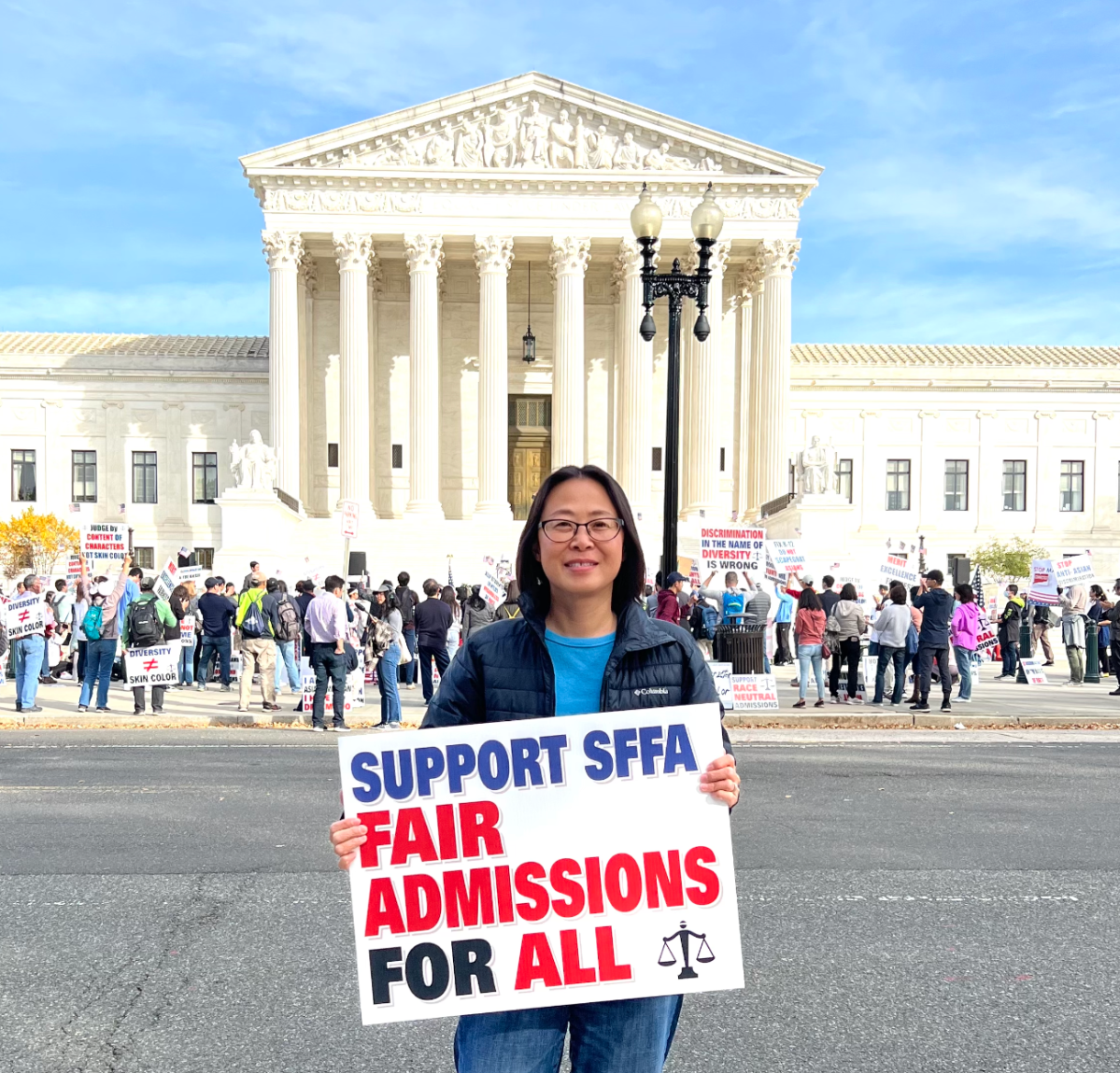Parents claiming that a statewide STEM program discriminates against Asian and white students in its admissions criteria are suing the New York State Department of Education.
The lawsuit filed in federal court on Jan. 17 alleges that the admissions requirements for the Science and Technology Entry Program (STEP), which was initially founded 39 years ago to give historically underrepresented students a leg up in college admissions, are racially discriminatory.
Chu, et al. v. Rosa, led by a Whitestone parent as the sole individual plaintiff, is making the case that educational opportunities denied to children based on race violate the constitutional premise of equality.
The publicly funded program provides around 11,000 students each year with laboratory research training, test preparation and college admissions counseling through partnerships with dozens of universities across the state. To determine which students will benefit from the academic enrichment program, race and economic eligibility are the only two aspects considered for those enrolled in grades 7-12.
For African American or Hispanic students to qualify, there is no income eligibility requirement for their parents. But white and Asian students are only eligible if they are from an economically disadvantaged household. For white and Asian students, they must come from a home with a household income under $51,338 in 2024 to qualify (household of four).
“A child of billionaires, for example, who happens to identify as black, is eligible for the STEP program. A Chinese American student whose parents barely top the poverty line, however, is categorically ineligible,” according to a statement from the Pacific Legal Foundation, the conservative public interest legal organization representing the parents.
The plaintiffs include NYC-based parent groups such as the Inclusive Education Advocacy Group, which advocates for disabled students, and Higher with Our Parent Engagement (HOPE). The Chinese American Citizens of Greater New York (CACAGNY) is also listed as a plaintiff.
Yiatin Chu, a Whitestone mother of two, joined the lawsuit after hearing about the effort from a fellow member of CACAGNY several weeks ago. Despite not knowing about the program beforehand, she is the only individual plaintiff listed.
She says that her 7th grade daughter, who is academically strong in STEM subjects, would benefit from the program, which gives students science and math subject instruction, standardized test preparation and the chance to participate in research labs.
The Pacific Legal Foundation, in partnership with the Equal Protection Program leg of the Legal Insurrection Foundation, is representing the parents at no cost.
After joining the lawsuit, two Asian parents reached out to Chu to express that at one point they wanted their children to apply but were disappointed at not meeting the requirements. One parent considered the program two years ago, while another Queens resident recalled not meeting the eligibility requirements over 20 years ago.
“If you’re Asian, you have to be low income. That’s wrong. And from my understanding of our Constitution, we should not be discriminated on our race,” said Chu, who co-founded Parent Leaders for Accelerated Curriculum and Education (PLACE NYC) to advocate for parents navigating the city’s complex and competitive education system.
She entered the education advocacy space in 2019 after hearing about efforts to modify the Specialized High School Admissions Test (SHSAT), the sole criteria to gain admission into one of city’s eight specialized high schools. Close to half of the students who sat for the SHSAT exam last year were Black or Hispanic, yet only 9% received an offer. Critics of the test say that it is perpetrating segregation in the city’s top schools.
“There are lots of places in our society where the representation is not proportional to the population. That’s just kind of the fact of the world. To use under-representation as a reason to discriminate, we need to move beyond it,” said Chu. “I think it creates a very divisive environment.”
Chu said that she was pleased with the SCOTUS decision in 2023 to end race-based affirmative action for college admissions. Despite her daughter only being in the 7th grade, the college admissions process is already on her mind.
“I believe in having more choices. I believe in kids all having equal opportunity. I personally feel this one [STEP] especially is anti-Asian, the way it was designed to exclude Asians, and that needs to be corrected,” said Chu. “I hope that new programs that get established do not follow in the footsteps of STEP where they structure a program that’s racially discriminatory.”
Council Member Robert Holden, who represents Ridgewood and the surrounding area, took to social media to criticize the STEP eligibility requirements in a show of solidarity with the parents.
“It’s frustrating that citizens are forced to sue their own government to uphold fairness. Programs like this undermine true equality,” wrote Holden on X. “The government should use its power to provide excellent education and an environment for supportive homes for all, not programs that divide.



































